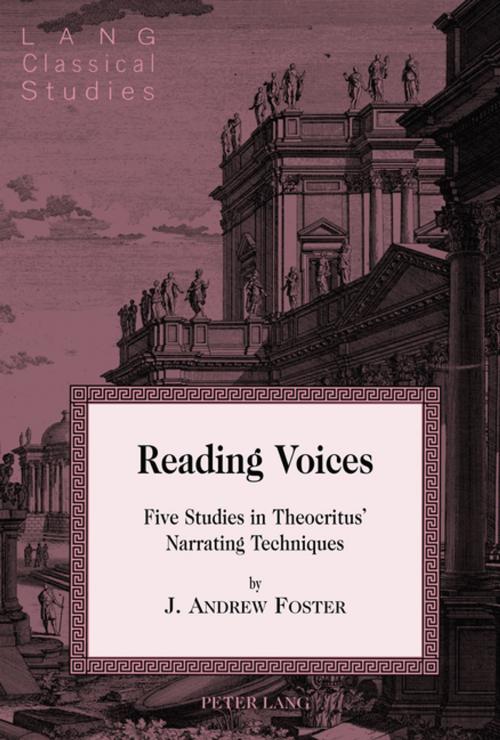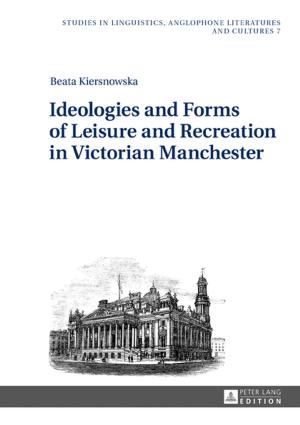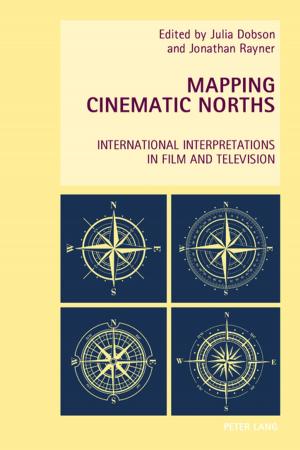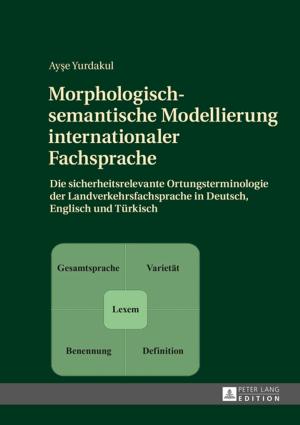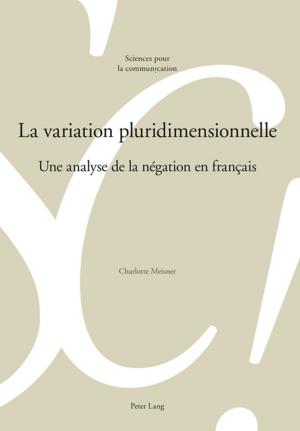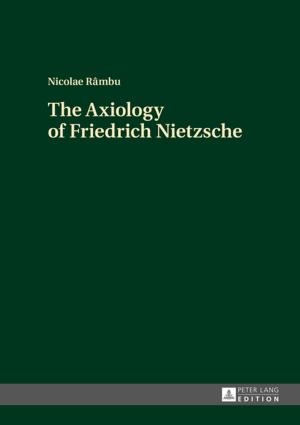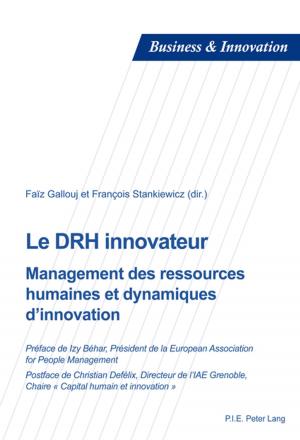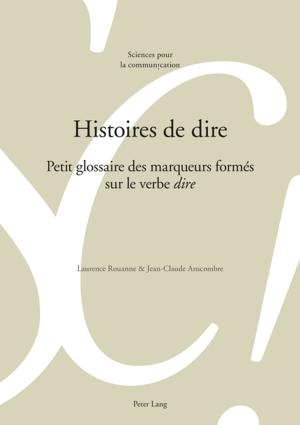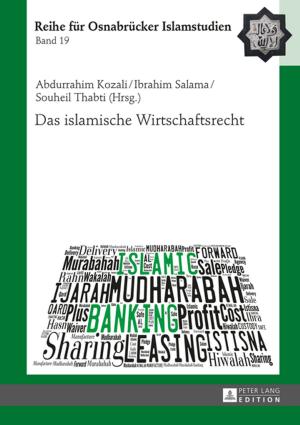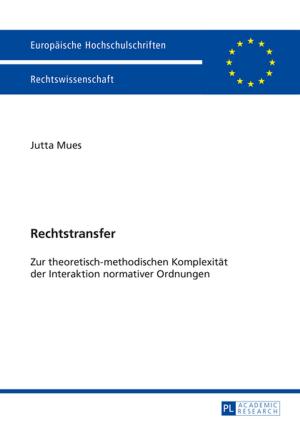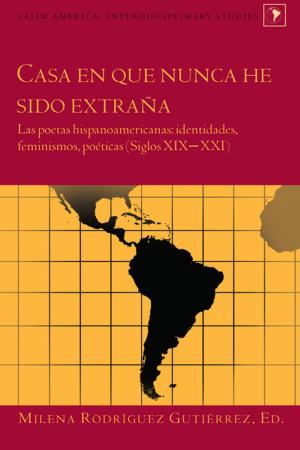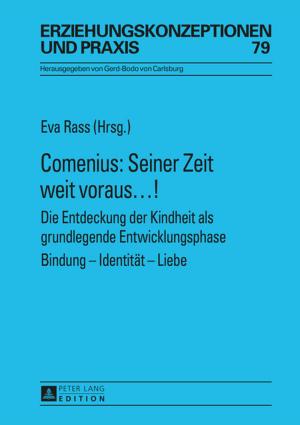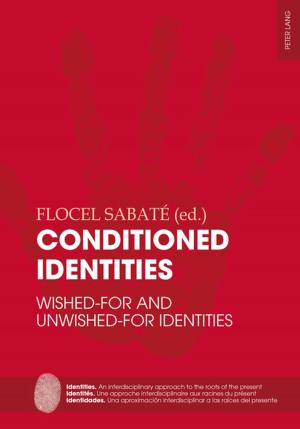Reading Voices
Five Studies in Theocritus Narrating Techniques
Fiction & Literature, Literary Theory & Criticism, Ancient & Classical, Nonfiction, Reference & Language, Foreign Languages| Author: | J. Andrew Foster | ISBN: | 9781454199229 |
| Publisher: | Peter Lang | Publication: | February 26, 2016 |
| Imprint: | Peter Lang Inc., International Academic Publishers | Language: | English |
| Author: | J. Andrew Foster |
| ISBN: | 9781454199229 |
| Publisher: | Peter Lang |
| Publication: | February 26, 2016 |
| Imprint: | Peter Lang Inc., International Academic Publishers |
| Language: | English |
This book is a study of Theocritus’ narrating techniques, intertextual practices, and the relationship between them. By a close, careful description and analysis of these features as particularly deployed in Idylls 6, 11, 13, 24, and 15, J. Andrew Foster provides detailed readings of these specific poems, demonstrating how each poem’s narrative structure and its intratextual and intertextual affiliations interact to characterize the voices and audiences expressed and imagined by the discourse. Within these poems Theocritus especially orchestrates polyphonic voices speaking to diverse fictional, ideal, and actual audiences and so authorizes a range of responses to speech-in-text. His densely allusive poems exhibit an iterative aspect and resistance to closure that particularly encourage his readers to help compose larger metanarratives in which such resolution can be achieved or the particular episode can be better understood. The interplay between the referential systems inscribed within these poems and their rhetorical structure exemplifies how Theocritus encourages his poetry to be incorporated into a wider literary discourse by which that wider literary landscape is transformed. Within these experiments in narration and reception, Theocritus exhibits an intense engagement with the literary past and his critical present whose receptions and authority are continually problematized. These readings will serve as a springboard into the wider ongoing study of the problems of poetic voice, authority, and literary innovation within Theocritus’ poetry in particular and Hellenistic poetry in general.
This book is a study of Theocritus’ narrating techniques, intertextual practices, and the relationship between them. By a close, careful description and analysis of these features as particularly deployed in Idylls 6, 11, 13, 24, and 15, J. Andrew Foster provides detailed readings of these specific poems, demonstrating how each poem’s narrative structure and its intratextual and intertextual affiliations interact to characterize the voices and audiences expressed and imagined by the discourse. Within these poems Theocritus especially orchestrates polyphonic voices speaking to diverse fictional, ideal, and actual audiences and so authorizes a range of responses to speech-in-text. His densely allusive poems exhibit an iterative aspect and resistance to closure that particularly encourage his readers to help compose larger metanarratives in which such resolution can be achieved or the particular episode can be better understood. The interplay between the referential systems inscribed within these poems and their rhetorical structure exemplifies how Theocritus encourages his poetry to be incorporated into a wider literary discourse by which that wider literary landscape is transformed. Within these experiments in narration and reception, Theocritus exhibits an intense engagement with the literary past and his critical present whose receptions and authority are continually problematized. These readings will serve as a springboard into the wider ongoing study of the problems of poetic voice, authority, and literary innovation within Theocritus’ poetry in particular and Hellenistic poetry in general.
